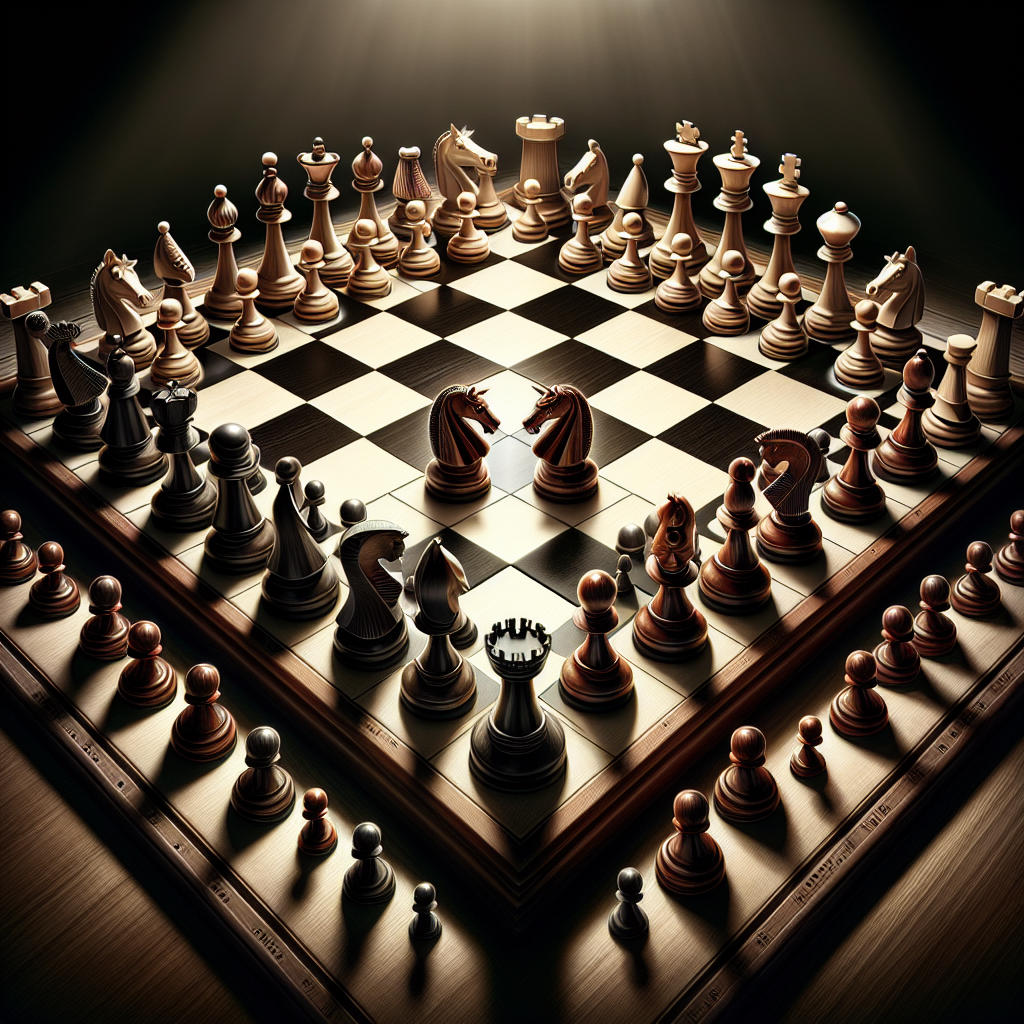Analyzing Putin's Double-Down Dilemma: A Deep Dive
In the intricate chess game of international politics, players are often predictable in their unpredictability. And when it comes to Vladimir Putin's Russia, the stakes are as high as the tensions. The question on everybody's lips seems to be: How will Putin play his next move in this high-stakes geopolitical standoff?
In an enlightening piece of analysis, the spotlight shines on Putin's back-against-the-wall strategy, which, paradoxically, might just be his only forward. But to truly grasp the essence of this political conundrum, one must dive deeper than the surface-level assumption of "stupidity" and explore the multifaceted layers of strategic brinkmanship, psychological warfare, and the art of doubling down when all chips are on the table.
The Art of Doubling Down
At the heart of Putin's playbook is the absence of a back-down strategy. It's all about doubling down, pushing the envelope, and testing the resolve of the international community. But this isn't about reckless gambits or uncalculated risks. No, it's a calculated strategy, albeit one that walks a razor's edge between audacity and catastrophe.
Putin's game is one of perception as much as it is of action. It's about projecting strength, resolve, and the willingness to go further than anyone else. But the million-dollar question remains: Are the oligarchs and generals in his corner ready to keep upping the ante? Or will there come a day when the cost of loyalty becomes too steep, leading to a potential breakfast surprise of an entirely different kind?
The Wall of No Return
The concept of painting oneself into a corner is not unfamiliar in the annals of history. It's a situation where, metaphorically speaking, the only way out is to either break through the wall or to keep painting. Putin, it seems, has chosen the latter. However, this strategy leaves little room for traditional negotiation or de-escalation, pushing him to seek out victory in situations where a draw might inherently be the most logical outcome.
The decades-old playbook of not recognizing territorial gains, thereby drowning the aggressor under a deluge of sanctions, aims to suffocate the Russian economy into capitulation. But here lies the rub: Can an economy be sanctioned into submission without pushing its people into a corner so tight that they see no out but through?
A Lesson from History
Historical precedents abound where leaders, backed against a wall, have found unorthodox exits from seemingly inescapable predicaments. The resolution, often, lies in allowing the embattled party a semblance of dignity—an off-ramp from the highway of escalation that doesn't scream surrender but whispers compromise.
This strategic concession might just be the solution to the Putin puzzle. It's about crafting a narrative that allows Russia to step back without losing face, a narrative where both sides can claim a semblance of victory. However, this is easier said than done. Crafting such a narrative requires diplomacy of the highest order and a willingness from all parties to prioritize the long game over short-term tactical gains.
The North Korea Parallel
The specter of Russia becoming akin to North Korea is a chilling one, not just for the Russian people but for the global community. An isolated, sanctioned Russia, driven into the arms of desperation, might prove to be more dangerous than a Russia engaged in dialogue, however fractious that dialogue might be.
The challenge, then, is to maintain pressure without pushing Russia into a corner from which the only escape is through escalation. It's a delicate balance, one that requires nuance, patience, and the recognition that today's adversary could be tomorrow's uneasy ally.
Looking Forward
As we stand at this crossroads, the path forward is fraught with uncertainty. The solution lies not in unconditional surrender or the relentless march of armies but in the art of diplomacy, strategic concessions, and the recognition of mutual humanity beyond the chessboard of geopolitics.
The future, as always, is unwritten. But the lessons of the past and the realities of the present offer guideposts for those willing to navigate the treacherous waters of international relations in search of a sustainable peace. It's a journey worth taking, for the alternative is a game of chicken where everyone loses.
In a world where the stakes are as real as they get, understanding the motivations, fears, and aspirations of one's "opponents" isn't just smart strategy—it's a survival tactic. And as we delve deeper into the complexities of Putin's double-down dilemma, one thing becomes clear: In the grand scheme of things, stupidity is rarely the driver. Instead, it's about understanding the game—and sometimes, the most audacious move is to not play the game at all.
For further reading on the intricacies of global politics and the delicate dance of diplomacy, explore these resources:
In the end, the essence of strategy lies not in choosing the path of least resistance but in shaping the battlefield in such a way that all paths lead to an outcome you're prepared to live with. And in the case of Vladimir Putin's Russia, the world watches with bated breath as the next move is contemplated, with the hope that the outcome is one of peace, stability, and mutual respect.
Related News
- Navigating the Tightrope: The Delicate Dance of Diplomacy with Russia
- The Strategic Blunders That Reshape Geopolitical Landscapes: From Pearl Harbor to Crimea
- Russia's Missed Road to Prosperity: A Journey Through Its Woes and What Could Have Been
- Navigating the Chaotic Waves of Governance and Geopolitics: Inside the Decision-Making Vortex
- Peering Into the Abyss: The Shadow of Global Conflict in the Modern Era
